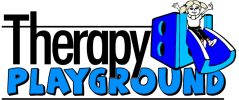https://youtu.be/SAcKKOYUaIs
Melissa and Julieanne discuss jaw weakness and how it effects speech and language, and how you can tell if your child may have jaw weakness.
The masseter muscle helps move your jaw. Just like any other muscle in your body, you can exercise it to make it stronger.
When a child has jaw weakness they are not able to chew properly when feeding. It can also cause jaw instability which may cause a lateral motion when trying to chew or speak.
The “R sound” is very difficult to make when a child has jaw weakness because your jaw needs to be stable because your tongue is back it’s being stabilized by your jaw.
Another example are the infant-toddler children ages 1-3 when the child is really trying to speak, and you may have to close your eyes to see if you can still understand the child, and if you cannot, you should not give them credit, even with good intentions.
It can cause speech to sound unclear and mumbled, and cause children to not be able to say certain sounds. These are reasons jaw stability is very important when it comes to speech and feeding.
When it comes to feeding, a child may not be a “picky eater”, it may be that they prefer the softer or puréed foods because their jaw is weak and have trouble chewing. You may notice they attempt and may enjoy other foods but simply cannot chew and swallow them, or may gag, choke, or possibly vomit.
Some children have an open jaw posture, or even a slightly open posture, which is also related to jaw weakness.
